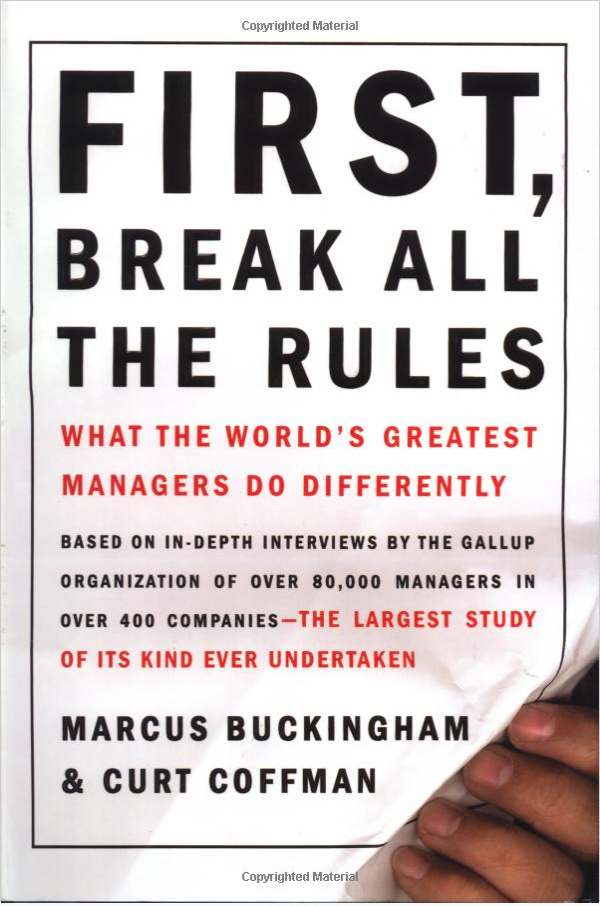People don’t change that much. Don’t waste time trying to put in what was left out. Try to draw out what was left in. That is hard enough.
Try to help each person become more and more of who he already is.
6 most powerful questions for your staff… linked to productivity, profit, retention and customer service results:
Do I know what is expected of me at work?
Do I have the materials and equipment I need to do my work right?
At work, do I have the opportunity to do what I do best every day?
In the last seven days, have I received recognition or praise for doing good work?
Does my supervisor, or someone at work, seem to care about me as a person?
Is there someone at work who encourages my development?
Selecting for talent is the manager’s first and most important responsibility. If he fails to find people with the talents he needs, then everything else he does to help them grow will be as wasted as sunshine on barren ground.
Great managers know that there is a limit to how much each employee’s different style, needs and motivation can be ground down.
Define the right outcomes and then let each person find his own route toward those outcomes.
Standardizing the ends prevents managers from having to standardize the means.
The most efficient way to turn someone’s talent into performance is to help him find his own path of least resistance toward the desired outcomes.
Innate mistrust is probably vital for some roles lawyering or investigative reporting, for example. But for a manager it is deadly.
Investing in your strugglers appears shrewd yet the most effective managers do the opposite. They invest in their best.
For the great managers, the core of their role is the catalyst role: turning talent into performance.
In most cases, no matter what it is, if you measure it and reward it, people will try to excel at it. The things that get rewarded get done.
Celebrate “personal bests”. Many people like to compete with themselves. Design a system so that each person can keep track of his performance “personal bests”

